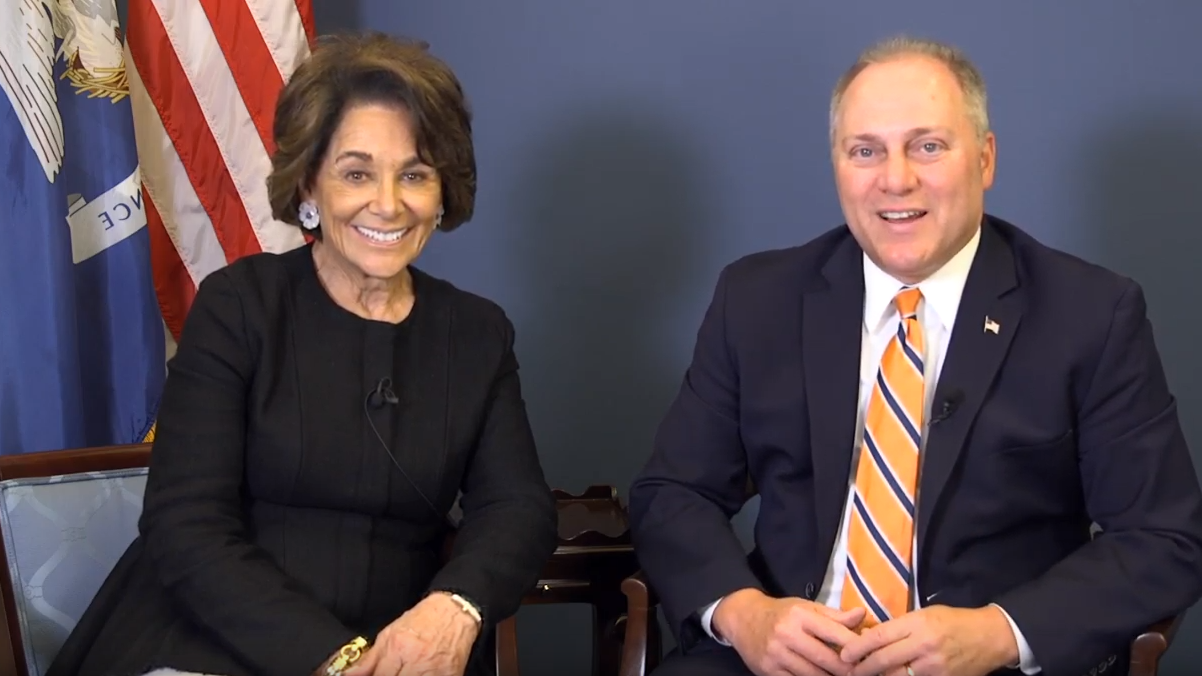The professional video industry's #1 source for news, trends and product and tech information. Sign up below.
You are now subscribed
Your newsletter sign-up was successful
WASHINGTON—Congress has heard enough complaints from consumers about TV station blackouts from pay-TV operators and now two representatives have introduced a bipartisan bill to overhaul the 25+ year-old retransmission rules.

The 1992 Cable Act, which put into place such rules as must carry and retransmission consent have become “outdated,” according to Reps. Steve Scalise (R-LA) and Anna Eshoo (D-CA), who this week took to YouTube to introduce the “Modern Television Act of 2019.”
Among other things, while it would not repeal must carry, the act would replace retransmission consent with “traditional free market negotiations to happen under ‘traditional copyright law.’” It would also require pay-TV providers to continue to provide broadcast signals for up to 60 days after retrans agreements expired while the two parties held negotiations. It would also allow the FCC to bring a neutral third party into negotiations.
This year has seen a record number of station blackouts according to the ATVA, a coalition of consumer groups, cable, satellite and telephone companies and independent programmers. The most prominent blackouts are occuring now as AT&T has removed Nexstar and CBS-owned stations from DirecTV over disagreements on retrans. Rep. Eshoo, who TV Technology readers may remember from her advocacy for loudness rules earlier this decade, decried the current situation, likening viewers to “hostages.”
"These outdated laws aren’t just bad for the market, they’re hurting consumers,” she said. “When blackouts take place, consumers are held hostage during the disputes between the broadcasters and the cable company. This year, there have been over 200 blackouts. That’s more than double the number from a few years prior. In fact, my constituents are facing major broadcast blackouts right now. These outdated regulations end up hurting consumers in their wallets."
"It’s the end of the road for the outdated 1992 video laws,” said Republican Minority Whip Scalise. “It’s time for Congress to finally modernize these laws. Our bill goes back to basic copyright protection, so that everyone gets paid for their product, and consumers get to choose whatever they want to buy, wherever they want to buy it, whatever device they want to watch their video on."
ACA Connects, which represents small to mid-market pay-TV operators, strongly advocated the proposals.
The professional video industry's #1 source for news, trends and product and tech information. Sign up below.
“I applaud Reps. Scalise and Eshoo for introducing the Modern Television Act. It represents a serious and long-overdue attempt to address the increasing dysfunction in the television marketplace," said ACA Connects President Matthew Polka. "For too long, broadcasters’ greed and ability to leverage their government-granted protections have led to skyrocketing prices and broadcaster blackouts. And for too long, ACA Connects’ smaller cable system operator members have borne the brunt of broadcasters’ misconduct. The Modern Television Act promises real change and real relief for consumers."
“If the Modern Television Act were law today, tens of thousands of Americans—including many customers of ACA Connects members—would never have lost their broadcast signals. And the endless cycle of broadcaster price increases might finally stop, or at least slow down," he said.
“I am especially pleased to see that the Modern Television Act contains provisions that, at long last, would extend the FCC’s good faith rules to negotiations involving buying groups used by small cable system operators, such as the National Cable Television Cooperative."
NAB was not so thrilled.
“NAB respectfully opposes legislation introduced by Reps. Eshoo and Scalise that we believe would undermine America’s world leadership in free and local broadcasting,” the association said Thursday. “We look forward to working with Reps. Eshoo and Scalise—and other policymakers—as we strive to preserve a local broadcasting system that is the envy of the world. In an era of social media dysfunction and the loss of daily newspapers, local television remains an indispensable force for good by exposing corruption at City Hall, keeping communities safe during natural disasters and delivering the most popular source of free entertainment and sports programming.”
Tom has covered the broadcast technology market for the past 25 years, including three years handling member communications for the National Association of Broadcasters followed by a year as editor of Video Technology News and DTV Business executive newsletters for Phillips Publishing. In 1999 he launched digitalbroadcasting.com for internet B2B portal Verticalnet. He is also a charter member of the CTA's Academy of Digital TV Pioneers. Since 2001, he has been editor-in-chief of TV Tech (www.tvtech.com), the leading source of news and information on broadcast and related media technology and is a frequent contributor and moderator to the brand’s Tech Leadership events.

